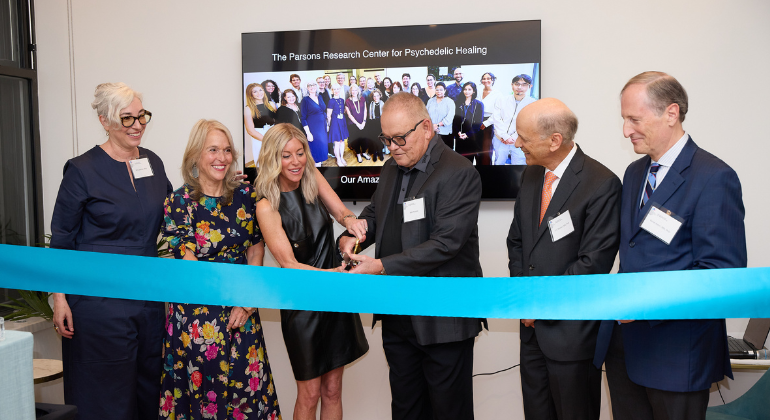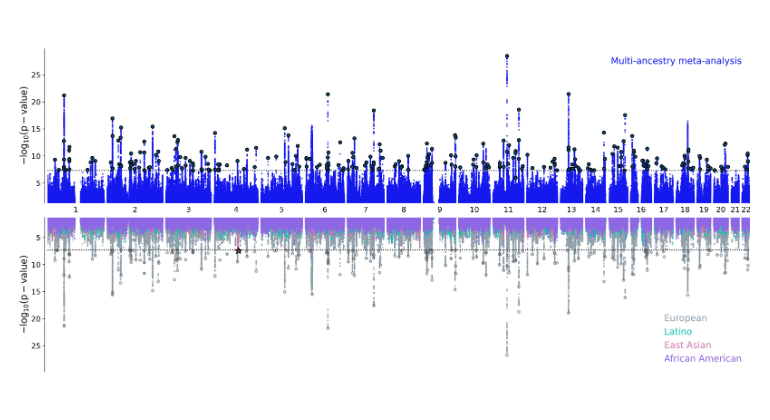Working Memory Is Positively Associated With Higher Physical Endurance and Better Cognitive Function, Mount Sinai Researchers Find
Suboptimal cardiovascular health, binge drinking, and smoking are associated with less cohesive brain network
Mount Sinai researchers have found a positive relationship between the brain network associated with working memory—the ability to store and process information relevant to the task at hand—and healthy traits such as higher physical endurance and better cognitive function.
These traits were associated with greater cohesiveness of the working memory brain network while traits indicating suboptimal cardiovascular and metabolic health, and suboptimal health habits including binge drinking and regular smoking, were associated with less cohesive working memory networks.
This is the first study to establish the link between working memory and physical health and lifestyle choices.
The results of the study will be published online in Molecular Psychiatry on Tuesday, December 5, at 4 am EST.
The research team took brain scans of 823 participants in the Human Connectome Project (HCP), a large brain imaging study funded by the National Institutes of Health, while they performed a task involving working memory, and extracted measures of brain activity and connectivity to create a brain map of working memory. The team then used a statistical method called sparse canonical correlation to discover the relationships between the working memory brain map and 116 measures of cognitive ability, physical and mental health, personality, and lifestyle choices. They found that cohesiveness in the working memory brain map was positively associated with higher physical endurance and better cognitive function. Physical traits such as high body mass index, and suboptimal lifestyle choices including binge alcohol drinking and regular smoking, had the opposite association.
“Working memory accounts for individual differences in personal, educational, and professional attainment,” said Sophia Frangou, MD, PhD, Professor of Psychiatry at the Icahn School of Medicine at Mount Sinai. “Working memory is also one of the brain functions that is severely affected by physical and mental illnesses. Our study identified factors that can either support or undermine the working memory brain network. Our findings can empower people to make informed choices about how best to promote and preserve brain health.”
This study was supported by grants from the National Institutes of Health (R01 MH104284-01A1) and European Unit FP7 program (IMAGEMEND 602450; IMAging GEnetics for MENtal Disorders) projects, the Swiss National Science Foundation, the National Institute for HealthResearch (NIHR; Biomedical Research Centre at South London and Maudsley NHSFoundation Trust and King’s College London) and the Bundesministerium für Bildung und Forschung (eMED SysAlc01ZX1311A).HCP data are disseminated by the Laboratory of Neuro Imaging at the University of Southern California.
About the Mount Sinai Health System
Mount Sinai Health System is one of the largest academic medical systems in the New York metro area, with 48,000 employees working across seven hospitals, more than 400 outpatient practices, more than 600 research and clinical labs, a school of nursing, and a leading school of medicine and graduate education. Mount Sinai advances health for all people, everywhere, by taking on the most complex health care challenges of our time—discovering and applying new scientific learning and knowledge; developing safer, more effective treatments; educating the next generation of medical leaders and innovators; and supporting local communities by delivering high-quality care to all who need it.
Through the integration of its hospitals, labs, and schools, Mount Sinai offers comprehensive health care solutions from birth through geriatrics, leveraging innovative approaches such as artificial intelligence and informatics while keeping patients’ medical and emotional needs at the center of all treatment. The Health System includes approximately 9,000 primary and specialty care physicians and 11 free-standing joint-venture centers throughout the five boroughs of New York City, Westchester, Long Island, and Florida. Hospitals within the System are consistently ranked by Newsweek’s® “The World’s Best Smart Hospitals, Best in State Hospitals, World Best Hospitals and Best Specialty Hospitals” and by U.S. News & World Report's® “Best Hospitals” and “Best Children’s Hospitals.” The Mount Sinai Hospital is on the U.S. News & World Report® “Best Hospitals” Honor Roll for 2024-2025.
For more information, visit https://www.mountsinai.org or find Mount Sinai on Facebook, Instagram, LinkedIn, X, and YouTube.

Mount Sinai Expands Psychedelic Research Center With New Facility in Upper Manhattan
Sep 19, 2024 View All Press Releases







